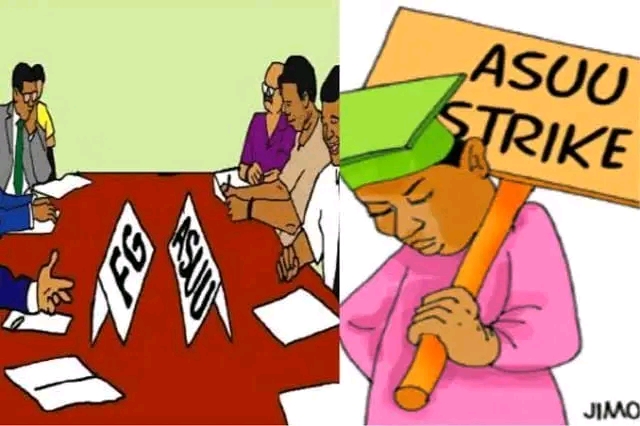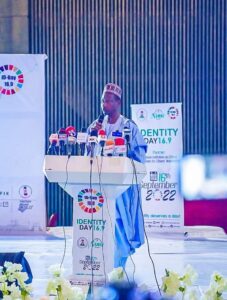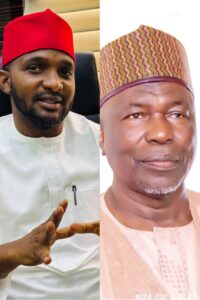
By Bilyamin Abdulmumin
The year 2022 is leaving an indelible mark on the history of Nigeria the Nigerian education sector in particular, no thanks to the long-standing impasse between the umbrella union of lecturers ASUU, and the executive arm of the federal government.
The standoff began in February following the federal government renege on the 2009 agreement and the subsequent ones that followed, these agreements include the payment of earned allowances, payment of revitalization funds to universities, improving the lecturers’ take-home salary, adopting the University Transparency Accountability Solution (UTAS) among others.
But on the other hand, the federal government who cited economic constraints as a reason threatens to balk at the entire education sector.
There were truckloads of articles, posts, and comments supporting and counter-supporting the impasse, the reactions from which we learned, relearned, and unlearned.
For those who threw their weight behind the strike, their reason was apparent: education is a sacred cow upon which the development and progress of any nation depend, therefore, imperative for any meaning government to give it a top priority, and no amount of proper condition of service demand by the sector is too much.
But for those who were at crossroads with this Marxist ideology, they, of course, based their argument on the counterpart ideology, which is, free market capitalist economy; for this category, everything should be viewed from an economic point of view and survival of the fittest, hence no sacred cow. In fact, education should not only sponsor itself but generate income for the government, the protagonist submitted.
But in between these two popular ideologies, there is an emerging third option, the Nordic Model. Scandinavian countries such as Sweden, Finland, and co are countries where this model blossoms. This type of economic model attempts to mitigate the effect of the extremisms of the Marxist economy as well as owner-take-all capitalism. In order words, Nordic policy lies in between these two radical global mainstay ideologies.
Dr. Abdulazeez Atta (Associate prof. Chemical Engineering, ABU) put this Nordic model into perspective, according to prof., the nobles (affluence) should carry their crosses while the peasants (downtrodden) should get the government’s full support, and in between these two extremes of wealthy and poor the government should intervene depending on the need.
The issue of whether the government should totally fund, partially fund, or not at all fund education is a matter of ideology, with each ideology promising to bring the most productive society.
The issue second in controversy was the payment of withheld salaries of the lecturers while the impasse lasted. After all the effort to take the striking lecturers back to classes hit a brick wall, the FG through one of the biggest characters in the imbroglio, the minister of labor Chris Ngige activated the notorious industrial policy ” no work no pay”
I first heard about this controversial policy from former president Chief Olusegun Obasanjo in 2007 when in a similar case the then-president threatened to stop lecturers’ salaries. But, I think the policy has never been implemented until now. Some argued that the lecturers didn’t work so they didn’t deserve the benefits, more so they have to sacrifice something for the sake of the better thing they want to achieve. Others such as Dr. Sagiru Mati ( a lecturer at Yusuf Maitama Sule University) have a plausible submission: if the lectures are to make up for the lost period for students: the lectures, tests, and exams then releasing the withheld salary is more than necessary.
The eight months strike has also thrown a lot of lessons at us. One of them was how the ideology of people changed with time, those who were once staunch ASUU activists suddenly jumped to the wagon of the other side. A good example was the minister of education Malam Adamu Adamu who wrote a donkeys article throwing roses on ASUU for their dodginess but fast forward he became the pilot to the affair of the education sector entirely, so naturally one will expect the former ASUU activist to facilitate and speed up the union demand but not standoff; however, the former ASUU loyalists did the unexpected. Another very prominent official did the same, and when social media unearthed his early days of aluta support it triggered a cause for reflection.
But Why the sudden shift of ideology for people especially when they become public office holders? Some think: if you don’t want to be like them don’t join them, others say it is a result of coming face to face with reality just like the difference in knowledge between theory and practical. This is a good reason why we should thread softly adopting any ideology.
The eight months of industrial action were also full of twists and turns. During the late period of the logjam, ASUU president prof. Victor Emmanuel Osodeke found himself down in the doldrum, the comrade called universities who appeared keen to open the school as quacks, prof. would open a floodgate he could not close. It appeared the government has found the touted crack it needed in the seemingly recalcitrant group of intellectuals. Mahmud jega would term Osodeke’s remark as a catastrophic two-front war.
A month or so after the Osodeke misfire, FG entertained us with a historic u-turn order. The FG through the national university commission NUC sermon their executive power to order the VC to open the university but before we even finish digesting, and putting the order under enough scrutiny, another order was issued for the withdrawal, up to now we can’t say for sure why the order was withdrawn.
The lingering strike of 8 months came to an end last Friday with the proclamation of the union leader Osodeke. Among all the previous, it was safe to conclude that the just suspended strike will go down in history as a turning point that will bring radical changes in the education sector. ASUU deserves to be commended for showing decorum so does the speaker of the blue chamber Femi Gbajabiamila who swiftly saw both the sides close the rank, By and large, in the words of Nigerian former president, no victor no vanquished.


